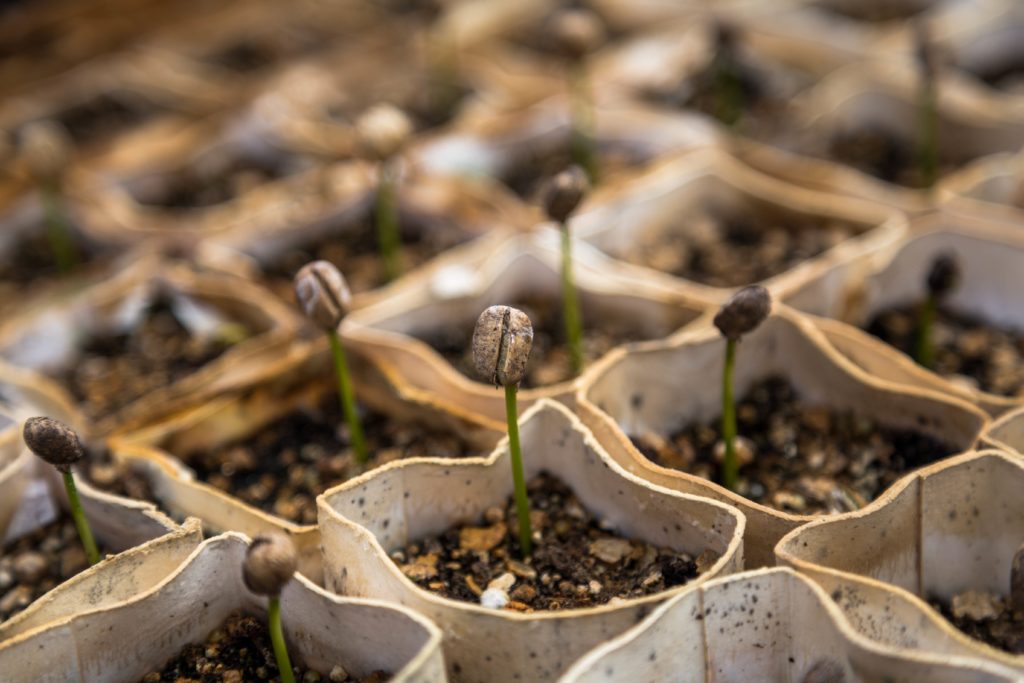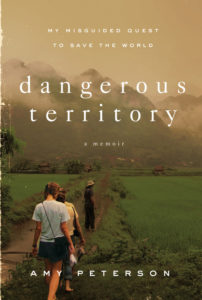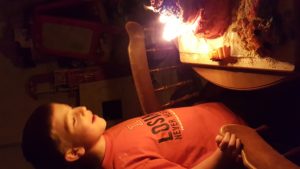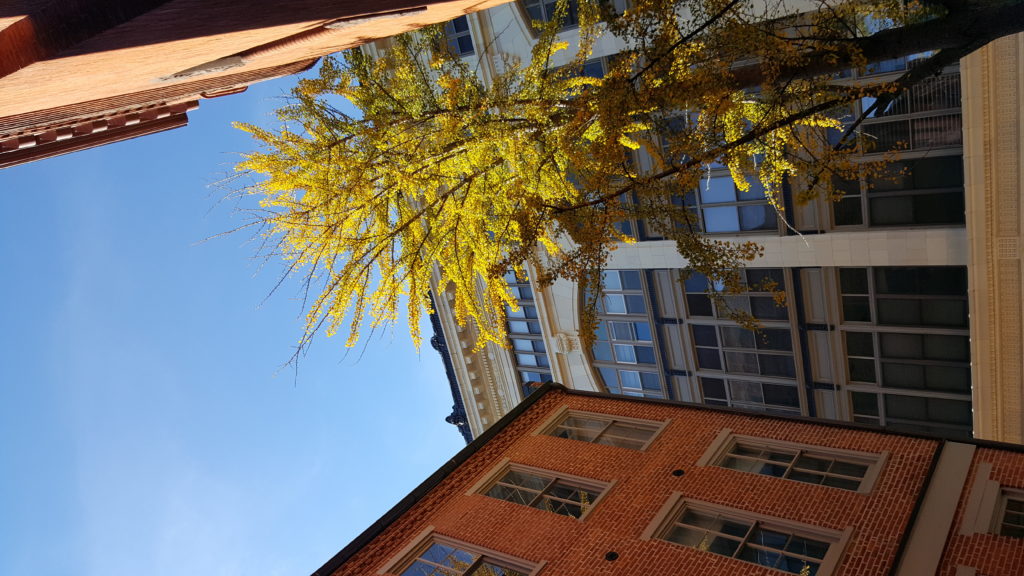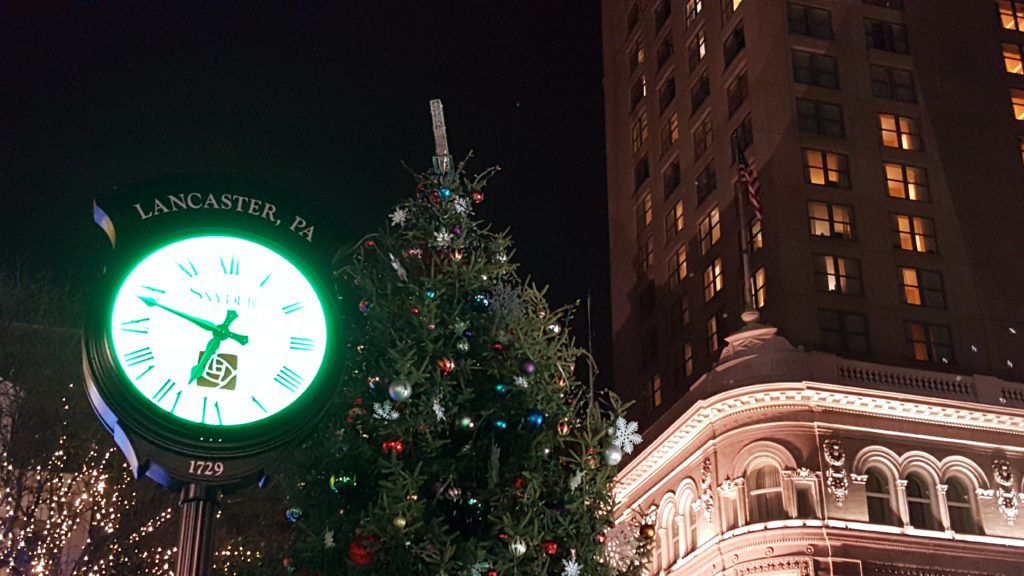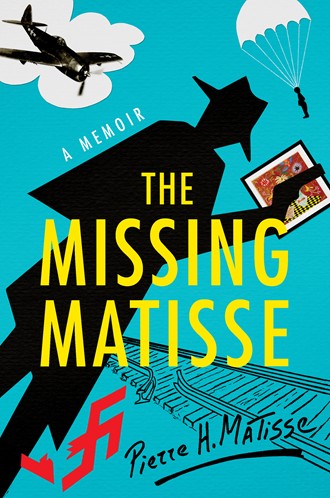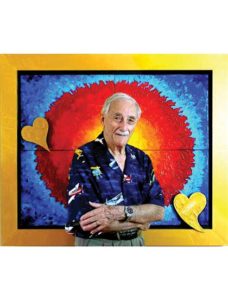We rode the bus for the first time today, kids, and I know you were excited about this new adventure. The lead-up to it was more fun, I’m afraid, than the fulfillment. Waiting at the bus, anticipating its arrival had us giddy with excitement (and a bit of nervousness maybe), but by the time we boarded, it was no big thing. You wore your feelings on your faces as our bodies warmed up.
You take it all in stride, these new experiences we take you on. When we say, let’s go to the Episcopal church service that’s really different than our church’s service and have steaming hot bowls of pho afterwards, you don’t hesitate to say yes. Sometimes I wonder if we’re leading you wrong. Would we take you with us into these unknowns if we didn’t have to track down a sitter every time we wanted to do something new in the city?
I think we would. We can’t help ourselves.
Your dad and I, we didn’t grow up in any kind of city but somehow we’re drawn to one, this one in particular, and as far as cities go, it’s small but full of life. I remember being afraid of cities when I was a kid. Unsure of how to find our way there. Averting my eyes when anyone approached asking for money. The city was a place to visit not to live.
Until now.
You know that we’re talking about moving there, to the city. It is a nudge we cannot ignore. And we want you to see what we see.
Because plenty of people will try to tell you things about the city. They might tell you it’s not safe or that bad people live there or that it is ugly, especially when compared to the sprawling farmland just outside the city, the wide open spaces we’re used to in the Midwest.
I can’t deny that some of what they say is true. The city is not safe. Bad people live there. And there are ugly parts.
But a lot of those people telling you those things haven’t been to the city recently or don’t go there often. Or maybe they do and they see what they want to see.
We want you to see differently.
I don’t want to scare you but nowhere is safe, not really. If gunmen can kill children in schools or Christians in churches then is there anywhere truly safe? This is not a reason to fear the world but the very reason we take you out into it. So you can see for yourself. A writer and philosopher named Frederick Buechner says something like this: “Here is the world. Beautiful and terrible things will happen. Don’t be afraid.”
You will see terrible things, I know. Things I can’t keep you from seeing forever. But I want you to look for the beautiful things, too.
It is true that bad people live in the city but bad people live everywhere (and I’m really struggling with that label anyway; is anyone more bad than anyone else? Are we not all a mixture of the best and worst parts of ourselves?). On the bus today, people thanked the driver as they left. It’s an unnecessary kindness, but it reminds me that people are not all the worst things we think of them. As we sat and ate lunch at the market, strangers stopped to talk to us. (I confess, this is uncomfortable for me, but I lean into the discomfort and try to make these people more real.)
It probably didn’t hurt that you were some of the only kids in the market on a Friday thanks to a wacky school schedule, but the people making your subs wanted to talk to you as did the old men who sat down at the table next to us. The one wearing the name tag told us he was a hymnologist, someone who studies hymns. I have no idea if this is a real thing but he told us stories of how “Jesus Loves Me” came to be a classic hymn of the church. The other man showed you the whiteness of his hair and lamented the loss of the red color that was so similar to yours, Isabelle.
A man did ask us for money, but instead of being afraid, I turned to address him. I didn’t have what he needed today, but I’ve seen him near the market before so I’ll look for him next time and ask him his name. He reminds me that we haven’t seen our other homeless “friends” in a while. It is winter, and I hope they are warm.
And as to ugliness, well, I just don’t see it. Yes, there are buildings and cars and buses and trash (but let’s face it, when the wind blows hard in the country, our lawn is littered with more trash than I knew existed), but Lancaster happens to be a city of history, art and architecture. Someday I want us to just walk the city and take pictures of all the beautiful things. The food at market. The people on the street. The bricks on the old church building. I can’t wait to do our part to make a little corner of the city more beautiful. Whatever that ends up looking like.
I want this to be the way you approach life, whether it’s the city or something else. If someone tells you things are a certain way, I want you to investigate and see for yourself. If someone tells you that refugees are dangerous, I want you to remember our friends, the ones who invite us into their homes and cook for us and play with you. I want you to remember my stories of all the new people I meet and how they want what everyone wants: a home, a job, purpose, a place to raise their families without fear.
If someone tells you the world is broken, I want you to look for any sign of wholeness you can find, and if you can’t find it, I want you to find a way to make the world a little less broken. With a smile. A friendly gesture. Or something more.
I want you to treat the people who serve you like they are your family or friends. When we get on the bus, we greet the bus driver as a person, maybe even find out his or her name. I couldn’t help thinking of Uncle Bill today as we rode the bus, and all the driving he did around Denver. I miss him.
Even if someone tells you that a certain kind of people are bad, I want you to think like Jesus and see if you can find the good. And even if you can’t, I want you to love them anyway.
I know this is a lot to take in after a simple bus ride and a few hours in the city, but I don’t want to leave anything unsaid. You trust us, for now, to do what’s best for you and that’s a responsibility I can hardly handle most days. I’m not all that good at taking care of myself yet for some reason God entrusted the two of you to me and your dad. We’re both pretty screwed up human beings and I can only hope God knew what He was doing. Maybe you’re here to help us be better people.
You might not always trust us or believe us, and when that happens, I hope you’ll have enough experiences of your own to draw from. Maybe you’ll be able to trust yourselves a little.
For now, we don’t intend to let up on the new and different. We have barely discovered all that the city has to offer. I hope you’ll keep joining in on our crazy ideas.
Adventure is more fun when you’re with us.




